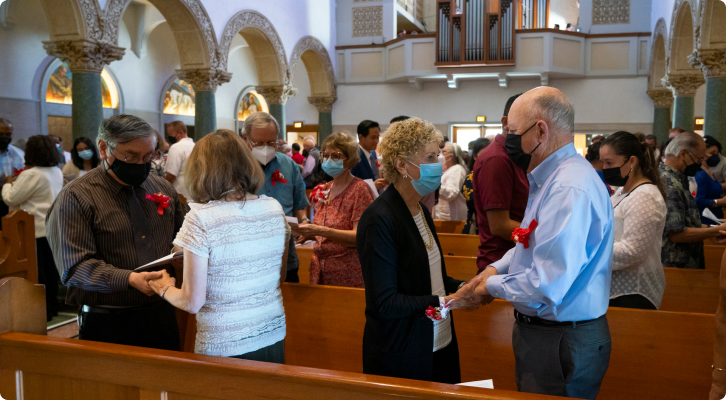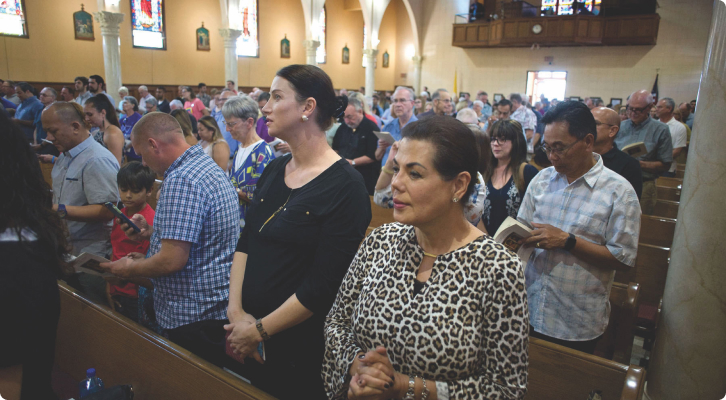Synod Transforms Ministry to Today’s Families
“Think big.” That’s what Bishop Robert McElroy urged the delegates of a synod on family life to do in 2016. The goal was to identify measures the diocese and parishes could adopt to revitalize and strengthen marriage and families.
Earlier that year, Pope Francis had presented a document called “Amoris Laetitia” (“Joy of Love”). He had invited bishops to figure out ways to better welcome today’s families, respond to their needs and help them to grow in their faith. Bishop McElroy answered the call by convening a synod, one of the few dioceses in the country to do so.
The family synod is the first of four consultations of the faithful the diocese has undertaken in Bishop McElroy’s seven years at the helm. They have engaged thousands of faithful to have a conversation with each other and with their diocese. This is extraordinary given that these diocesan-wide consultations represent a significant investment of resources and time. The last diocesan synod had been held 40 years ago.
The process the bishop used in the family synod would be emblematic of how he would tackle future challenges: Invite as diverse a group as is possible to participate in the consultation, listening to the faithful’s experiences and concerns; encourage a representative committee of lay leaders and clergy to be creative in their ideas to address those concerns, while staying grounded in the Gospel; trust the committee members as they do their work; and commit at the outset to swiftly implementing their proposals, in consultation with pastors and lay leadership.
By the end of the family synod, around 1,000 faithful had participated in sessions at virtually all parishes. The diocese began implementing the 15 recommendations the delegates had developed within two months of the final meeting.
One of them called for the creation of a new department, the Office for Family Life and Spirituality. The three new staff members immediately got to work. They launched a new marriage preparation program called Witness to Love. The office began to work with parishes to help them to develop spiritual formation through the prism of family life. And its staff began to work to support separated and divorced Catholics.

New Office Offered New Pathways to Heal
To begin to tend to the wounds modern families sustain, the office developed a series of workshops in English and Spanish called ”Healing Pathways.” They tackled such issues as drug addiction and alcoholism, mental illness and reproductive loss. And they included sessions on how to improve family communication, parenting skills and use of the Internet.
The synod participants identified groups with specific needs hungry for pastoral support. These included young married couples and couples who had been married for some time. The new office developed programming and resources for them, and encouraged parishes to do the same. Gays and their family members made up another group whose members had articulated in the listening sessions that they felt marginalized in the Church. The new office began to support parishes that wanted to launch or strengthen ministries to accompany this community.
Paulist Father John Hurley, a national leader in evangelization strategies, coordinated the family synod. He said that “it was a joy to watch and listen to Bishop” in dialogue with all the participants. “His capacity to open his heart and listen to anyone is the mark of a true shepherd,” he said. “He listened them into existence!”


